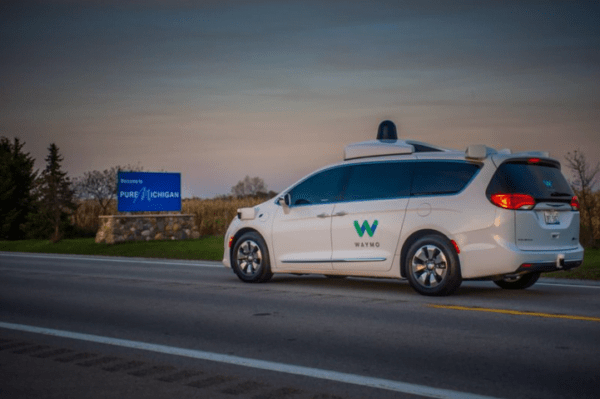
Building Autonomous Cars ‘Harder Than Rocket Science’ Says Waymo CEO

Photo: Waymo
Google sister company Waymo has spent over a decade working on a driverless vehicle. In that time, the company has raised $3.2 billion, signed a number of contracts, and even debuted the world’s first completely autonomous taxi service in Phoenix, Arizona.
In spite of all this, Waymo Chief Executive John Krafcik believes the task of putting autonomous vehicles on the road to be even harder than rocket science, as reported by Ars Technica.
In an interview with the Financial Times, Krafcik said, “It’s an extraordinary grind.” Krafcik continued, “I would say it’s a bigger challenge than launching a rocket and putting it in orbit around the Earth… because it has to be done safely over and over and over again.”
Interestingly enough, Elon Musk’s SpaceX has already achieved launching rockets into space–and having them autonomously land back on Earth, or onto floating drone ships in the ocean. Heck, SpaceX is the only private company to send a spacecraft to the International Space Station and back, joining only the USA, China and Russia in doing so.
https://twitter.com/AdamJosephCook/status/1346871349264998407
While autonomous driving is already a hot-button issue in the auto world today, one commenter on the article questioned a re-envisioning of the idea of “self-driving cars.”
The commenter wrote, “At what point would it become cheaper to just remake all roads to rail instead and develop a fleet of individual ‘carriages’ we could use to travel those rails? I’m still positive on self-driving cars, but I do wonder if we are perhaps being held back by an idea of what a ‘car’ is?”
As Waymo continues to develop its driverless cars and trucks, so will other companies. Tesla is the only EV company that currently offers a beta of a semi-autonomous driving system, entitled Full Self-Driving, and while Waymo and other companies scramble to keep up, the next decade will likely dictate the long-term culmination of what autonomous driving becomes.

